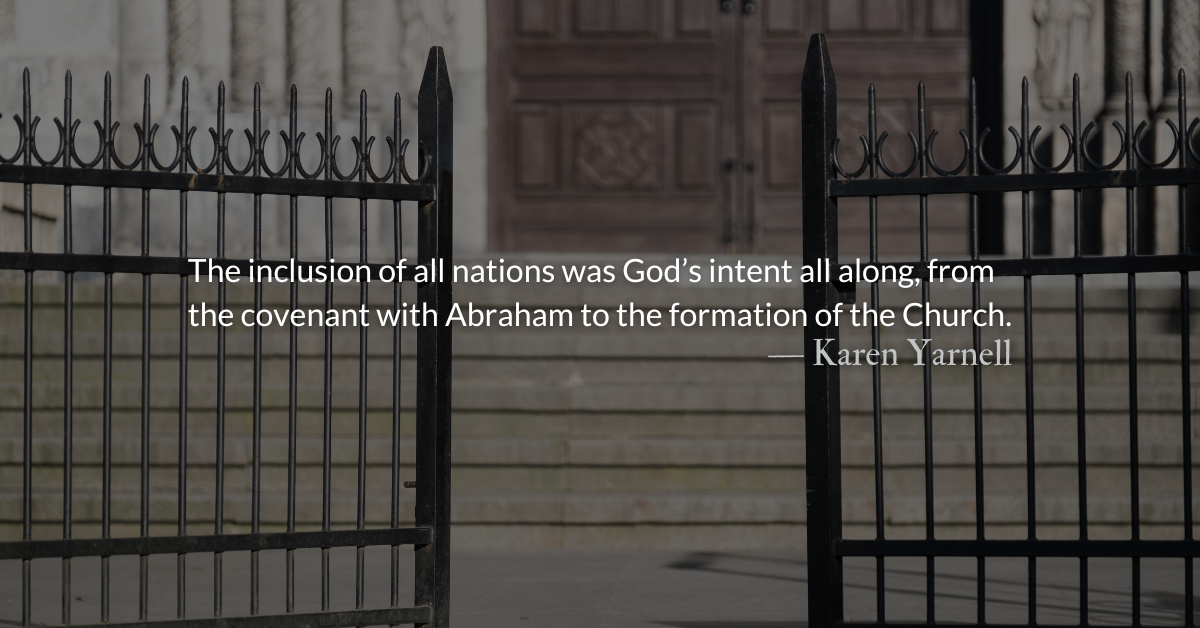Scripture Focus: Acts 21.10-14
10 After we had been there a number of days, a prophet named Agabus came down from Judea. 11 Coming over to us, he took Paul’s belt, tied his own hands and feet with it and said, “The Holy Spirit says, ‘In this way the Jewish leaders in Jerusalem will bind the owner of this belt and will hand him over to the Gentiles.’” 12 When we heard this, we and the people there pleaded with Paul not to go up to Jerusalem. 13 Then Paul answered, “Why are you weeping and breaking my heart? I am ready not only to be bound, but also to die in Jerusalem for the name of the Lord Jesus.” 14 When he would not be dissuaded, we gave up and said, “The Lord’s will be done.”
Reflection: Prophecies and Purposes
By John Tillman
Some prophecies are conditional warnings or invitations. “Repent or this disaster will come on you” or “Be faithful in this and I will bless you.” For these prophecies, we have agency. Within God’s sovereignty, we choose between the curses or blessings set before us.
Some prophecies announce what God will do or what will happen. We have no agency in these outcomes. God sovereignly acts, either directly or through others, to bring them to pass. We cannot block the blessings or dodge the judgments of these pronouncements and promises.
Many prophecies told Paul trouble loomed in Jerusalem. “Through the Spirit,” Luke writes, friends encouraged Paul not to go. (Acts 21.4) Agabus came from Judea and dramatically prophesied how Paul would be taken prisoner. Paul’s friends assumed this prophecy was a warning to avoid Jerusalem.
Agabus was from Judea, so the Jerusalem elders may have known about the prophecy. But they didn’t need a spiritual word to see trouble in Paul’s future. Rumors and lies were spreading about Paul and violence was a likely result. They planned a public display of righteousness and orthodoxy that they hoped would disprove the rumor-mongers and liars.
Spiritual and non-spiritual prophecies surround us. Dangerous lies are spreading. Violence is predicted. We are told we shouldn’t “go there.” We are told to placate the violent and demonstrate orthodoxy to avoid conflict. We may think like Paul’s friends at times. “If bad things will happen when we do X, then we should do Y.” But if something is the right thing to do, there we must stand, regardless of the outcome.
Not every bad thing is to be avoided or conquered. Some teach us something. Some accomplish something good. Some are simply to be endured. We don’t always know which is true in each scenario and faithful Christians may disagree about interpretations.
The friends’ plan to avoid imprisonment failed. The elders’ plan to avoid violence failed. But Paul’s commitment to the gospel never failed, and God’s purpose for Paul’s life never failed. To Paul, the prophecies’ purpose was preparation, not avoidance. (Acts 20.22-24)
What “prophecies” are you, your friends, or your leaders worried about? Are they preparing you for hardship or promising persecution? Are they warning you to turn away or inviting you to be faithful?
Have grace for one another and remember the promises and purposes of the gospel that will never fail. Commit yourself to these things.
Divine Hours Prayer: The Request for Presence
Our God will come and will not keep silence; before him there is a consuming flame, and round about him a raging storm. — Psalm 50.3
– From The Divine Hours: Prayers for Summertime by Phyllis Tickle.
Today’s Readings
Isaiah 34 (Listen 2:59)
Acts 21 (Listen 5:55)
Read more about Facing Wolves
It can be exciting to think you are fighting demons and hunting wolves. However, in hunting for “wolves” we can injure a lot of sheep.
Listen to Pause To Read
Listen to and share our latest podcast episode, No Asterisk. Deborah’s judgeship is not a fluke and neither is yours.









